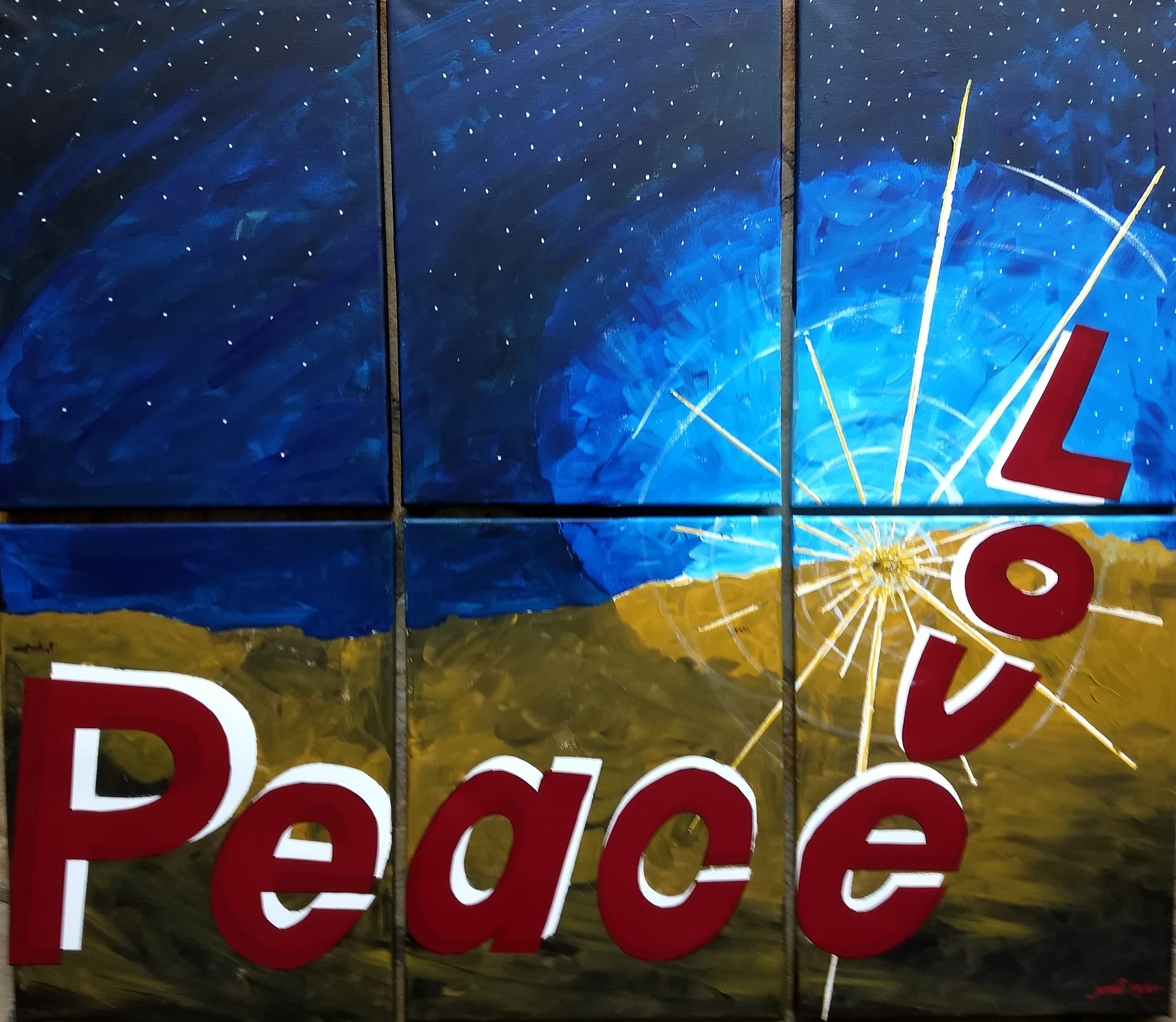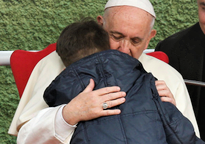Third Sunday of Advent
Something had to change.
Something drastic had to happen.
The Jewish world of first century Palestine was awash in extreme poverty, burdensome taxation, widespread hunger, and frightening persecution.
The mood was one of utter hopelessness.
By imposing brutal taxation, the Roman Empire robbed landowners of all they possessed. Some of the leaders of the Jewish religion colluded with their Roman masters to benefit personally, in effect joining them in persecuting their own Jewish people. Starvation and disease were rampant.
Something had to change.
And then … something did.
“A man named John was sent from God.”
Called “the Baptist,” he became something of a sensation of the time. People flocked from all over to hear his words of judgment, of God’s consuming wrath, and of the need for total conversion through baptism in the river Jordan.
The movement launched by John became so popular that it alarmed the Romans who feared that people would revolt and complete control of them would be lost.
So, King Herod imprisoned John to put an end to his growing protest. But, when John’s followers persisted in their protests, Herod had John murdered. The king was convinced that this killing would surely put an end once and for all to the unrelenting demand for radical change.
But it didn’t.
Instead, still another threat arose, another kind of revolution presented itself.
This one came from a person named Jesus who grew up in a tiny, podunk town named Nazareth.
Originally a follower of John, including being baptized by him, Jesus took an entirely new direction. Despite enormous evidence to the contrary, Jesus invited people to believe in a whole new message:
“The reign of God has come. The answer to people’s deepest hope – to live in dignity – has arrived.”
The God that Jesus personally experienced and preached was not the God of wrath and judgment that John taught. Instead, the God of Jesus was One who wanted nothing more than to destroy, not the people, but the mysterious power of evil that was so pervasive – and still is!
Jesus firmly believed that the God he experienced as “Abba,” Father, was the anti-evil. He was the God whose only desire was to destroy anything that damaged human beings.
According to Jesus, God is the One who liberates, who frees, who unshackles all those deprived of a full, happy life.
Jesus never refers to this God as “king.” Instead, God is presented as “father” – a father whose only desire is to fill all creation with compassion. God does not want anyone to suffer, rather, His goal is to heal, to dispel misery, to, in the words of one Gospel writer, provide the means so “that they may have life, and have it abundantly.” (Jn. 10:10)
Based on his unique relationship with God, Jesus did not speak of any future punishing wrath of God.
Instead, Jesus saw everything in the context of God’s wondrous, infinite mercy.
In fact, Jesus introduced a whole new language describing God.
Jesus agreed with John that people needed an experience of full conversion, of radical change. But first and foremost, Jesus taught people to picture God as he himself had experienced God through intimate prayer: a God of lavish compassion – a God who wants only to heal, to liberate, to make whole.
And so, Jesus talked about something he called “the reign of God.”
Jesus repeatedly emphasized that God comes to us primarily as a rescuer and a liberator. As such, he replaced John the Baptist’s austere life in the desert with a lifestyle centered on meals open to everyone – meals to which he could invite people to celebrate this new possibility of total trust in a God of limitless compassion.
And then Jesus followed up his words with action.
Doing things John never did, Jesus healed people that no one else could, soothed the pain of the “least of these” who lived on the margins of society, and blessed and embraced women and children and lepers and sinners of all kinds.
Everyone was invited to Jesus’ feasts of mercy.
As a result, another kind of revolution – one unlike John’s – had its beginning.
Sadly, today’s world faces a host of terrifying issues: a pandemic that is claiming the lives of millions of people worldwide, growing instances of terrible gun violence, the rise of neo-Nazism, fears about the future of our planet, widespread starvation at home and around the globe, people unable to pay their rent, afford meals, get appropriate medical care, a multitude of jobs being lost. And a host of other critical problems.
“A man named John was sent from God.”
Once again, as in the time of John the Baptist’s era, something has to change.
Something drastic has to happen.
That “something” is “the one who is coming after me.”
Hopefully, the coming feast of Christmas will remind us that our lives are meant to say to one and all what Jesus in effect said to John so long ago:
Go, tell the world what you hear and see: the unemployed are given jobs, the homeless are housed, the hungry are fed, the children are cared for, the immigrants are granted freedom, the prisoners are visited, the addicted are made whole.
May we all follow John’s lead and make this Christmas a re-birthing in each of our hearts, a re-creation of a “manger” within us in which the child Jesus can be re-born – the Jesus who showed us who our God really is:
One rapturously in love with all people.
One who wants only justice and solidarity, forgiveness to people overwhelmed by guilt, and healing for those abused by life situations.
Ted Wolgamot, Psy.D.
NOTE: Reflection by Richard Rohr, OFM:
“I believe that if we can do one or two things wholeheartedly in our life, that is all God expects. The important thing is that we all should be doing something for the rest of the world!
We have to pay back, particularly those of us born into privilege and comfort. Avoid all comparisons about better or lesser, more committed or less committed; those are all games. Let’s just use our different gifts to create a unity in the work of service (Ephesians 4:11-13), and back one another up, without criticism or competition. Only in our peaceful, mutual honoring do we show forth the glory of God.”
“And he gave some as apostles, others as prophets, others as evangelists, others as pastors and teachers, to equip the holy ones for the work of ministry, for building up the body of Christ, until we all attain to the unity of faith and knowledge of the Son of God, to mature adulthood, to the extent of full stature of Christ.” (Ephesians 4: 11-13)
A quote for the week from Sr. Rachel:
“It costs so much to be a full human being that there are very few who have the enlightenment or courage to pay the price …. One has to abandon altogether the search for security and reach out to the risk of living with both arms. One has to embrace the world like a lover.”





